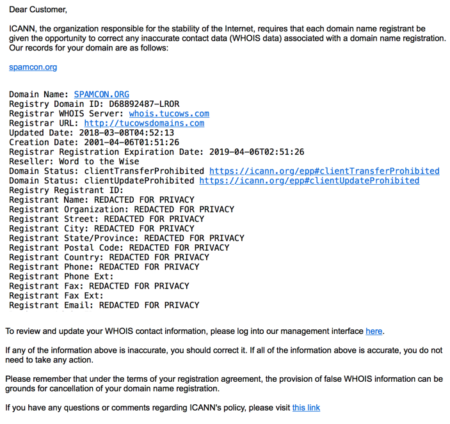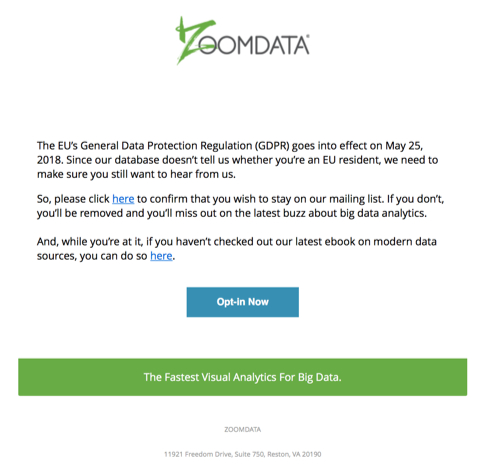Whois silliness from Tucows
- laura
- December 5, 2018
- Uncategorized
In the wake of GDPR, public whois records are 100% redacted. There is lots of work going on to attempt to provide the data without violating privacy laws, but no one is there yet.
This came up because today I got email from Tucows asking me to verify and, if necessary, update my whois data. Now, Tucows is the registrar, so they know all of the data. But they sent me this Gee, thanks. That’s so helpful.
Gee, thanks. That’s so helpful.
